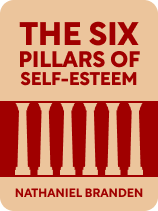

This article is an excerpt from the Shortform book guide to "The Six Pillars of Self-Esteem" by Nathaniel Branden. Shortform has the world's best summaries and analyses of books you should be reading.
Like this article? Sign up for a free trial here .
Is one’s self-esteem the result of internal or external factors? What role does culture play in self-esteem?
Although self-esteem starts with your own behavior, external factors still play a role. According to psychotherapist and self-esteem expert Nathaniel Branden, one of the major external factors influencing self-esteem is the culture where you grew up.
Keep reading to learn how cultures affect the self-esteem of their members—and how cultural values that support or discourage self-esteem affect the overall health of societies.
How Culture Influences Self-Esteem
While Branden acknowledges that self-esteem is a recent Western concept, he argues that everybody needs self-esteem, regardless of culture, because you need self-esteem to survive: You only feel capable of handling the fundamental necessities of life—which you must in order to survive—if you have healthy self-esteem. Similarly, unless you feel you’re intrinsically worthy, you won’t, for example, take the actions necessary to protect yourself—and in this way, you’ll damage your ability to survive. (Shortform note: One Finnish study casts doubt on Branden’s argument. It found that low self-esteem did not increase mortality rates—only hopelessness did.)
The culture in which you grew up is one of the key factors influencing self-esteem—to both your advantage and disadvantage. Your culture instills particular beliefs that affect how they view the world, thus impacting their self-esteem. Individuals often aren’t aware of these cultural beliefs—but even when they are, Branden argues, it’s impossible to avoid the influence of these beliefs.
(Shortform note: In 12 Rules for Life, Peterson argues that our perception of humanity as a whole also influences our self-esteem. Since humanity has repeatedly revealed its propensity for evil—for instance, through atrocities such as the Holocaust—it’s become much easier for us to hate both humanity as a whole and ourselves (presumably for being part of the fundamentally “evil” human race).)
As an example, Branden points to two traditional Western beliefs regarding gender roles. First, Branden notes, women were historically deemed subservient to men. The ways in which this belief manifests in modern society continue to damage women’s self-esteem—even the ones who don’t consider themselves subservient to men in any way. (Shortform note: In The Confidence Code, Katty Kay and Claire Shipman explain that these beliefs manifest in schools: Girls are encouraged to be well-behaved, which discourages confidence-building behavior and may thus damage self-esteem.)
Second, Western men are taught to judge their worth by how well they provide for their families. This belief damages men’s self-esteem by teaching them to derive their worth from a service they provide, not from their intrinsic worth as human beings. (Shortform note: Psychologists warn that men may develop an “Atlas Complex” and believe that they must provide for everyone until they buckle under the pressure—which damages their health and relationships.)
Branden argues that two types of cultures are particularly unsupportive of self-esteem.
First, group-minded cultures, which Branden calls “tribal cultures,” prioritize the needs of the group over those of its members. By their nature, these cultures deem the individual unimportant—and so self-esteem is unimportant, too. (Shortform note: People from group-minded cultures can still have healthy self-esteem, but it often stems from factors Branden doesn’t believe indicate self-esteem. For example, one study found that young members of some group-minded cultures derive self-esteem from fulfilling societal expectations.)
Second, cultures that are both religious and authoritarian have proven to be unsupportive of self-esteem throughout history. Such cultures, Branden points out, regularly punish various expressions of self-esteem. For example, they punish anybody who dares to assert themselves by expressing a different point of view. However, the fact that these cultures don’t value certain pillars of self-esteem doesn’t diminish the pillars’ importance for members of those societies: Asserting yourself is still important even in religious, authoritarian cultures.
(Shortform note: The fact that many people go to great lengths to assert themselves in religious, authoritarian cultures despite the dangers of doing so supports Branden’s contention that expressing yourself is critical to your self-esteem. In Burundi, where people in gay relationships may be fined or jailed, young lesbians sometimes wear a secret symbol of their sexuality in public. This symbol allows them to find other lesbians with whom they can be themselves and take a break from hiding their sexuality—a self-rejecting behavior that likely damages their self-esteem.)
How American Culture Impacts Self-Esteem
Not every culture has such a straightforward relationship with self-esteem. Branden notes that American culture has elements that both support and are detrimental to self-esteem. On one hand, the Declaration of Independence enshrines personal freedom, which demonstrates how Americans value the individual—not the group. Similarly, Americans of previous centuries had to pave their own economic way instead of relying on the community—which required the capability and worthiness that are integral to self-esteem. On the other hand, other cultural aspects—like the gender roles described above and the legacies of slavery and discrimination against Black Americans—are harmful to self-esteem, especially among certain segments of the population.
Furthermore, since the foundation of the United States, Americans have always come from many different cultures. As a result, they’ve always had many different cultural beliefs, some of which carry over from cultures that don’t value self-esteem. Therefore, American culture has always included values that support self-esteem, and others that are harmful to self-esteem.
Branden warns that today, elements detrimental to self-esteem are starting to dominate American culture and leading to various social problems. In the mid-20th century, ideological movements like nihilism, moral relativism, Marxism, and epistemological agnosticism spread amongst American academics. As a result, academics started to teach several ideas that Branden deems anti-self-esteem. For example, they taught that nobody can know what constitutes reality, so our minds are unimportant and unreliable. They also taught that nobody can control their behavior, so nobody can take credit nor be held accountable for their behavior.
These ideas created a populace who started to believe that they were victims who were owed more. This ideology also influenced the systems Americans created—which, Branden argues, explains the rise in various societal problems over the latter half of the 20th century. For example, Branden contends that modern welfare systems don’t effectively fight poverty because they teach the poor that their poverty is out of their control. As such, the poor believe that improving their economic situation is impossible and thus don’t try to improve their lives.
To resolve these problems, Branden asserts, Americans—and every culture—must instead uphold and fight for the elements that support self-esteem. The increase in social issues in modern America proves that cultural values that are anti-self-esteem decrease the self-esteem of its members and thus harm them. Instead, Branden argues, cultures should instill values that support each pillar of self-esteem; this will not only raise individuals’ self-esteem but also create a healthier, happier society.

———End of Preview———
Like what you just read? Read the rest of the world's best book summary and analysis of Nathaniel Branden's "The Six Pillars of Self-Esteem" at Shortform .
Here's what you'll find in our full The Six Pillars of Self-Esteem summary :
- Exactly how to behave to improve your self-esteem
- Why you need to take responsibility for your life and actions
- Why so many self-esteem techniques don't work






